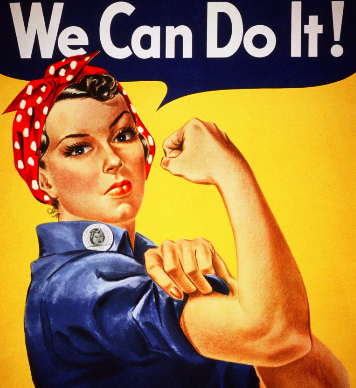
World War Two Propaganda Posters. [2]
The female cryptologists of World War II had to overcome the boundary of immense gender-based discrimination, one factor that distorted the importance and gravity of their work.
During the war, many men feared the women's newfound sense of empowerment and independence. Behind Rosie the Riveter's empowering message, women were the subject of slander. Women involved in the wartime effort were referred to as "prostitutes in uniform" and labeled dismissively as lesbians. [1]

World War Two Propaganda Posters. [2]
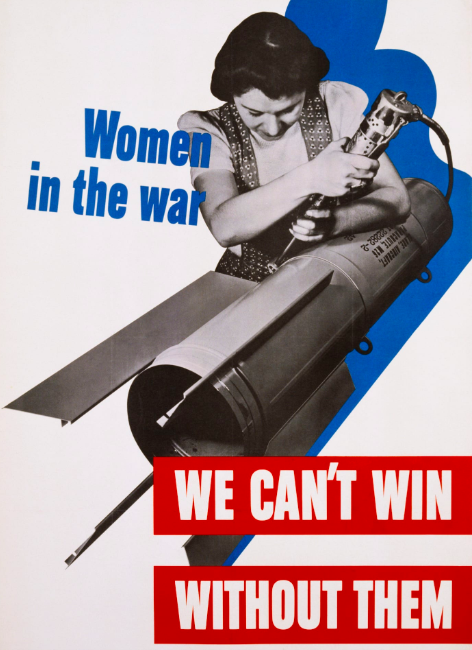
[3]
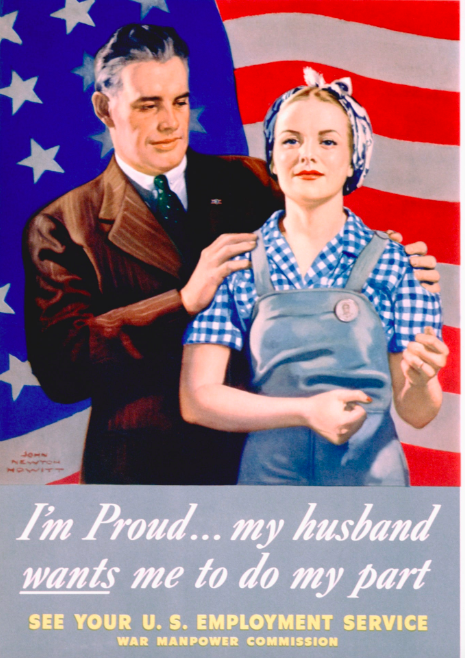
[4]
“It was generally believed that women were good at doing tedious work—and as I had discovered early on, the initial stages of cryptanalysis were very tedious, indeed.” -Ann Caracristi[5]
Additionally, men publicly diminished the role of the women by saying that the women were just there to "service the men," completing boring and repetitive computational work. This idea of inferiority was internalized by women such as Tori Arkle, a Marine cryptographer who emphasized that her work was temporary, unimportant, and purely “relieving” men to fight in the war. [6]
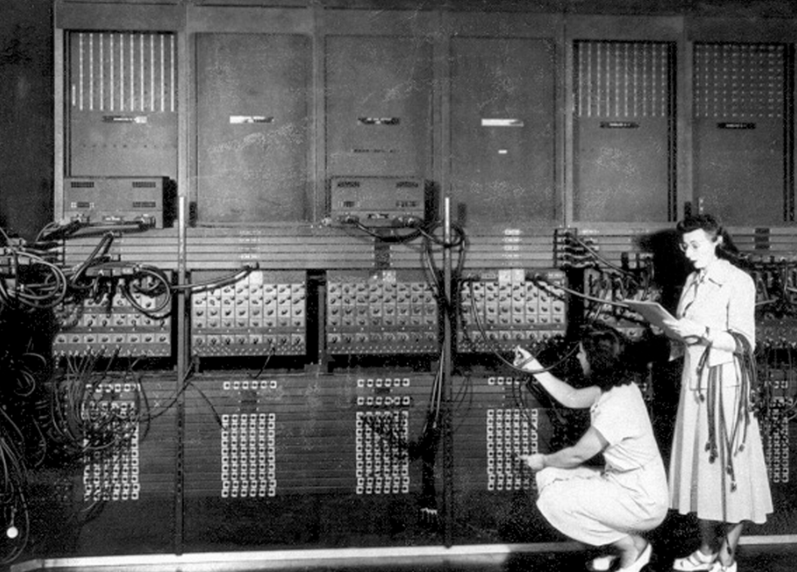
Women operating cryptology machines. [7]
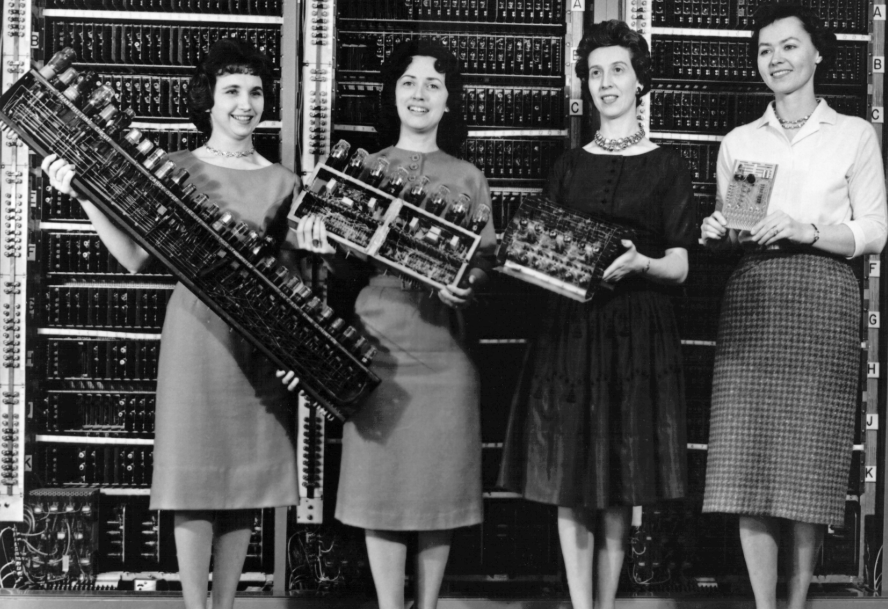
Parts of four of the earliest electronic computers used by the U.S. Army for cryptology. [8]
"Well, there weren't too many [women Marine] when I joined. But I didn't feel like I was a - I don't feel that I was all that important... There were two women in my office, and the rest were men... We relieved a lot of men to go." - Toni Arkle [9]
The American press furthered negative stereotyping of enlisted women by centering reports entitled “Fort Lipstick” and “Petticoat Army” on the women’s makeup and romantic relationships instead of their intellectual achievements and worth. [10]
BACK: The Women, Breaking Barriers
NEXT: Lacking Recognition
Footnotes:
1. Maya Wei-Haas, "How the American Women Codebreakers of WWII Helped Win the War," Smithsonian Magazine, October 5, 2017, accessed February 10, 2020, https://www.smithsonianmag.com/history/how-women-codebreakers-wwii-helped-win-war-180965058/.
2. We Can Do It!, accessed February 21, 2020, https://www.history.com/news/world-war-ii-propaganda-posters-photos-united-states-home-front.
3. Women in the War: We Can't Win without Them, accessed February 21, 2020, https://www.history.com/news/world-war-ii-propaganda-posters-photos-united-states-home-front#&gid=ci0230e630c06326df&pid=poster-by-howard-scott.
4. I'm Proud... My Husband Wants Me to Do My Part. See Your U.S. Employment Service: War Manpower Commission, accessed February 21, 2020, https://www.history.com/news/world-war-ii-propaganda-posters-photos-united-states-home-front#&gid=ci0230e630c06326df&pid=poster-by-howard-scott.
5. Mundy, Liza. "The Secret History of the Female Code Breakers Who Helped Defeat the Nazis." Politico. Last modified October 10, 2017. Accessed February 21, 2020. https://www.politico.com/magazine/story/2017/10/10/the-secret-history-of-the-women-code-breakers-who-helped-defeat-the-nazis-215694.
6. Wei-Haas, "How the American."
7. Clive Thompson, "The Secret History of Women in Coding," New York Times, last modified February 13, 2019, accessed February 21, 2020, https://www.nytimes.com/2019/02/13/magazine/women-coding-computer-programming.html.
8. Thompson, "The Secret," New York Times.
9. Lynée Lewis Gaillet and Helen Gaillet Bailey, eds., Remembering Women Differently: Refiguring Rhetorical Work (Columbia, SC: University of South Carolina Press, 2019), accessed February 21, 2020, https://books.google.com/books?id=BCGWDwAAQBAJ&pg=PT128&lpg=PT128&dq=slander+world+war+two+women+code&source=bl&ots=qUB7NXVf_f&sig=ACfU3U3xm0yrYSf8kl51p4zmGmgEcM4VlQ&hl=en&sa=X&ved=2ahUKEwj8-PTzj6DnAhWHJDQIHW1KCBkQ6AEwGnoECA0QAQ#v=onepage&q=slander%20world%20war%20two%20women%20code&f=false.
10. Gaillet and Bailey, Remembering Women.